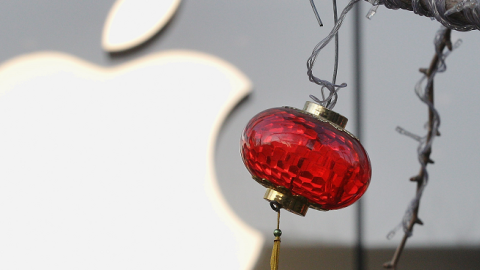Trade summits come and trade summits go, but this week’s meeting of the US-China Joint Commission on Commerce and Trade or JCCT in Chicago, could be unique. It might be the first time the United States government directly confronts China on its unprecedented assault on foreign-owned private sector businesses, including American companies, and forces some important concessions in exchange for what China desperately needs: more direct investment from America’s most successful and innovative companies.
Sadly, don’t hold your breath. Commerce Secretary Penny Pritzker may be one of President Obama’s best appointments; and US Trade Representative Mike Fromen one of our most skilled negotiators. But even they will have difficulty getting their Chinese counterparts to admit that their growing war on American firms doing business in China represents a major stumbling block to further economic ties between our two countries.
Most people are aware of the epic battle between Chinese authorities and Google that’s been grinding on since 2010, and similar quarrels with Apple over allegations of price gouging on iPhones–not to mention American entrepreneur Chip Starnes who was literally held prisoner in his factory by his workers, with government connivance. But in the last six months Chinese authorities have stepped up the bullying, intimidating, and outright blackmailing of companies they’ve decided are too successful, and our trade representatives need to explain it must stop.
Indeed, a survey in September by the American Chamber of Commerce in China found that 60% of American businesses feel less welcome on the mainland, and 49% say that foreign–owned firms are being singled out by the Chinese government for adverse treatment.
Because it’s not just US firms. German auto makers BMW, Daimler, and Audi along with 12 Japanese auto companies, have been hit with investigations of price gouging, and foreign pharmaceutical firms routinely get charged with bribery of Chinese officials, as part of the government’s “anti-corruption” campaign.
Most give in and drop their prices or otherwise submit to the charges and pay the fine. They are all too aware that state-run regulatory agencies can trigger an avalanche of bad publicity that can wreck a foreign-owned business in a matter of days. But some courageous American firms have been fighting back even though it puts their future business in doubt; and they deserve all the help their government can give them at the JCCT summit in Chicago.
A good example is America-based Qualcomm, one of the world’s biggest chipmakers. Qualcomm has invested nearly $30 billion in developing its Chinese market, which accounts for half its yearly revenue. Then Beijing decided Qualcomm was getting too big and needed to be taught a lesson. So in July China’s anti-trust regulators slapped Qualcomm with charges of operating a monopoly and abusing its market position in wireless communication.
Qualcomm stock tanked on the news; and the company’s future has hovered in the balance ever since. Even though CEO Steve Mollenkopf has tried since September to work with Chinese authorities to resolve the issue, its case remains on hold–as does the company’s future.
An even more egregious case is OSI, a food-processing firm that’s spent two decades and millions of dollars building up its Husi Food subsidiary to serve clients such as McDonalds, Burger King, and Starbucks in China. In August six OSI workers at its Shanghai plant were arrested and the plant shuttered. Sparking the action was a video on government-owned Dragon TV showing workers in the plant making chicken nuggets and patties from expired meat.
But what the video didn’t reveal is that the “workers” were in fact Dragon TV employees. Yet this video became the basis of charges on which the arrested employees are still being held, while hundreds of workers have been laid off even as OSI stock has taken a severe hit, just like Qualcomm’s-along with Husi Food’s reputation.
In virtually every case, the procedure is the same. The sudden announcement of high-profile charges against an American firm with splashy publicity; followed by a shadowy investigation that drags on for months with no disclosure of what’s being found or who’s under suspicion; then finally representatives of the company under fire backing down by either dropping their prices as Daimler, BMW, and Audi did, or paying a hefty fine rather than face being driven out of business, as British pharma giant GlaxoSmithKline did with a record $489 million payment to the Chinese government.
It’s the kind of shakedown racket Al Capone would have been proud of–yet in the end it’s hurting China more than the United States. From 2002 to 2012 China was the country where most international business executives wanted to do direct foreign investment, according to the A.T. Kearney annual survey. In 2013 it lost top place to the United States; this year confidence has slid further.
If China intends to grow out of its enormous debt problems, it’s going to need foreign investment to do it. Yet by biting the hand that feeds it, in OSI’s case almost literally, it’s only hurting its chances to revive its lackluster economy. Someone in Chicago needs to pass on that message, firmly and clearly.



















